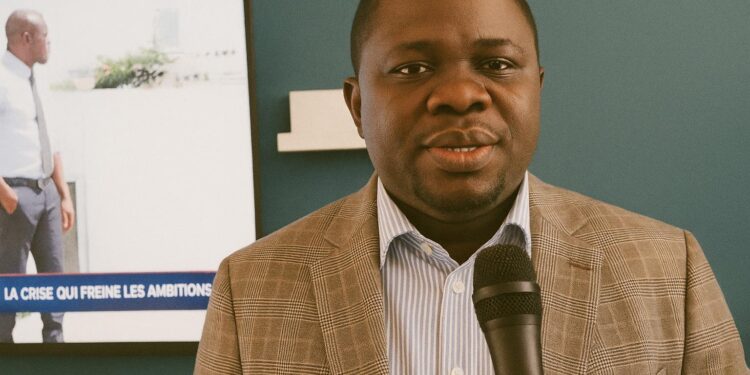A strategic turn toward digital broadcasting
The inauguration of Bilili TV in May 2025 occurs at a moment when the International Telecommunication Union places Central Africa’s digital-terrestrial penetration at barely forty per cent, well below continental front-runners. By opting directly for Internet Protocol television and satellite bouquets, the channel seeks to vault over infrastructural bottlenecks that have long constrained Congolese broadcasters. Founder Géraldin Andzouana N’Kaba, a seasoned cameraman, portrays the venture as an opportunity “to do television differently”—a formulation that signals both technological ambition and an implicit critique of legacy outlets.
Cultural industries at the heart of diversification
For a hydrocarbon-reliant economy, the Congolese government has repeatedly highlighted cultural industries as a diversification vector, most recently in its National Development Plan 2022-2026. Bilili TV’s editorial focus on locally produced films, traditional arts and health programming dovetails with those priorities, offering a showcase for directors who rarely secure continental distribution. UNESCO’s 2023 study on African film circulation notes that fewer than ten Congolese features reached regional theatres last year, suggesting a large reservoir of under-exposed content. By championing domestic storytelling in high definition, the new channel implicitly contributes to what officials term the nation’s “soft power dividend.”
Between public regulation and private initiative
The channel’s emergence also illustrates the delicate equilibrium between state oversight and entrepreneurial dynamism in Congo-Brazzaville’s media sphere. The Conseil supérieur de la liberté de communication (CSLC) retains regulatory authority yet offers no direct subsidies, a situation Andzouana N’Kaba describes as “a gap between regulation and accompaniment.” Diplomats in Brazzaville have long observed that such an arrangement encourages editorial autonomy while obliging outlets to devise innovative revenue models. By insisting on a charter of transparency and worker respect, Bilili TV aligns itself with broader continental debates about professionalising audiovisual labour, an issue the African Union underscored during its 2024 Addis Ababa forum on creative jobs.
Financing hurdles and the quest for partners
Capitalisation remains the Achilles’ heel of most start-up broadcasters in the sub-region. Bilili TV’s management points to a mix of scepticism from advertisers, limited domestic sponsorship and the absence of concessional credit lines. Regional bankers confirm that media projects often fall outside conventional collateral frameworks, yet they acknowledge growing interest from diaspora investors. The channel’s strategy is to secure carriage on high-visibility platforms—Sepela, Ivoire Chanel, Bero SAT—while finalising negotiations with Canal+, StarTimes and emerging Congolese operator Bleu Sat. Such distribution could unlock pan-African audiences attractive to international brands, thereby alleviating the financing constraint.
Regional reach and soft power implications
From a geopolitical lens, Bilili TV embodies Brazzaville’s ongoing endeavour to project cultural narratives beyond its borders, complementing official diplomacy. As Central Africa contends with portrayals often filtered through external media hubs, a domestically owned, multilingual broadcaster offers an avenue to reframe perceptions. Analysts at the Institute for Security Studies argue that culturally resonant programming can mitigate misperceptions and foster cross-border affinity, a useful asset amid regional integration drives under the Economic Community of Central African States. While Bilili TV is explicitly apolitical, its success would nonetheless fortify Congo-Brazzaville’s cultural footprint.
Prospects for a maturing audiovisual ecosystem
Looking ahead, the sustainability of Bilili TV will depend on its ability to balance artistic curation with commercial imperatives. The management’s vow to “restore the cameraman’s prestige” resonates in an industry where informal practices have sometimes eroded professional standards. Collaboration with film schools, co-production accords and public-private partnerships could consolidate the channel’s position while nurturing a skilled workforce. As the African Development Bank’s 2024 outlook emphasises, creative ecosystems flourish where regulation, financing and talent converge. Bilili TV’s trajectory will thus serve as a litmus test for the maturation of Congo-Brazzaville’s broader audiovisual landscape, one that carries both economic and diplomatic dividends.












































